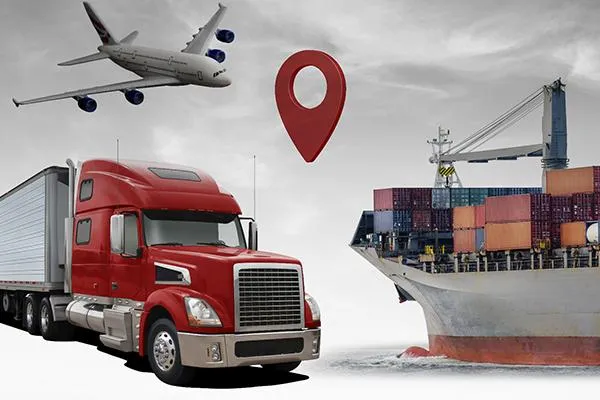BLOG

Navigating the Road Ahead: Fleet Management and GPS Technology Trends
In the world of fleet management, staying on the cutting edge of technology and industry trends is paramount. Businesses that harness the power of innovation are better equipped to drive efficiency, reduce costs, and improve customer satisfaction. In this blog, we'll explore some of the most significant trends in fleet management and GPS technology and discuss how these developments are reshaping the industry.
1. Telematics Revolution
One of the most transformative trends in fleet management is the widespread adoption of telematics. Telematics systems combine GPS technology with onboard diagnostics to provide real-time data on vehicle location, performance, and driver behavior.
How it Impacts Businesses:
Efficiency Boost: Telematics enables route optimization, reducing fuel consumption and improving delivery times.
Predictive Maintenance: Real-time monitoring helps prevent breakdowns, reducing downtime and costly repairs.
Safety Enhancement: Driver behavior insights lead to safer driving practices and fewer accidents.
2. Electric and Alternative Fuel Vehicles
Sustainability and environmental concerns are driving the integration of electric and alternative fuel vehicles (AFVs) into fleets. Electric vehicles (EVs), in particular, are gaining traction.
How it Impacts Businesses:
Cost Savings: Lower fuel and maintenance costs make EVs an attractive choice.
Environmental Responsibility: AFVs reduce carbon emissions, aligning with sustainability goals.
Charging Infrastructure: Businesses need to invest in charging infrastructure to support EVs.
3. Autonomous Vehicles on the Horizon
While fully autonomous fleets are still on the horizon, the development of autonomous vehicle technology is accelerating.
How it Impacts Businesses:
Efficiency Gains: Autonomous vehicles can operate 24/7, enhancing productivity.
Safety Improvements: Automation reduces the risk of human error and accidents.
Operational Changes: Businesses must adapt to new maintenance and operational requirements.
4. Data-Driven Decision-Making
Data analytics is the heartbeat of modern fleet management. Advanced software platforms process data to provide insights into driver behavior, route optimization, and vehicle performance.
How it Impacts Businesses:
Efficiency Optimization: Data-driven decisions lead to more efficient operations.
Enhanced Safety: Identifying risky behavior improves safety measures.
Cost Reduction: Lower fuel consumption and maintenance costs result from informed choices.
5. Regulatory Compliance and ELDs
Electronic Logging Devices (ELDs) are now standard in fleet management. They automate hours-of-service tracking, ensuring compliance with regulations.
How it Impacts Businesses:
Reduced Paperwork: ELDs simplify compliance management.
Avoid Penalties: Automated tracking reduces the risk of violations.
Efficient Operations: ELD data aids in optimizing driver schedules and routes.
6. Customer Expectations and Real-Time Tracking
Customers expect real-time visibility into deliveries and services. Fleet management systems that offer live tracking and estimated arrival times can enhance customer satisfaction and loyalty.
How it Impacts Businesses:
Customer Satisfaction: Real-time tracking improves the customer experience.
Competitive Edge: Meeting customer expectations sets businesses apart.
Operational Efficiency: Efficient routing and planning benefit both businesses and customers.
7. Sustainability Initiatives
Sustainability is no longer a buzzword; it's a business imperative. Fleets are adopting eco-friendly practices and vehicles to reduce their environmental impact.
How it Impacts Businesses:
Environmental Responsibility: Sustainability efforts align with corporate social responsibility.
Cost Savings: Eco-friendly practices often result in reduced operational costs.
Reputation Enhancement: Sustainability initiatives can boost a company's image.
Conclusion
The landscape of fleet management is evolving at an unprecedented pace. As technology advances, regulations change, and customer expectations rise, businesses that embrace innovation and adapt to these trends will thrive.
Efficiency, safety, sustainability, and customer satisfaction are the driving forces behind these trends. By staying informed and proactive, fleet management businesses can harness these developments to drive their success.
As we navigate the road ahead, it's clear that the future of fleet management will be shaped by technology, sustainability, and a commitment to excellence. Businesses that embrace these trends will not only survive but also thrive in the evolving landscape of fleet management and GPS technology.


© 2023 TransTech Solutions - All Rights Reserved